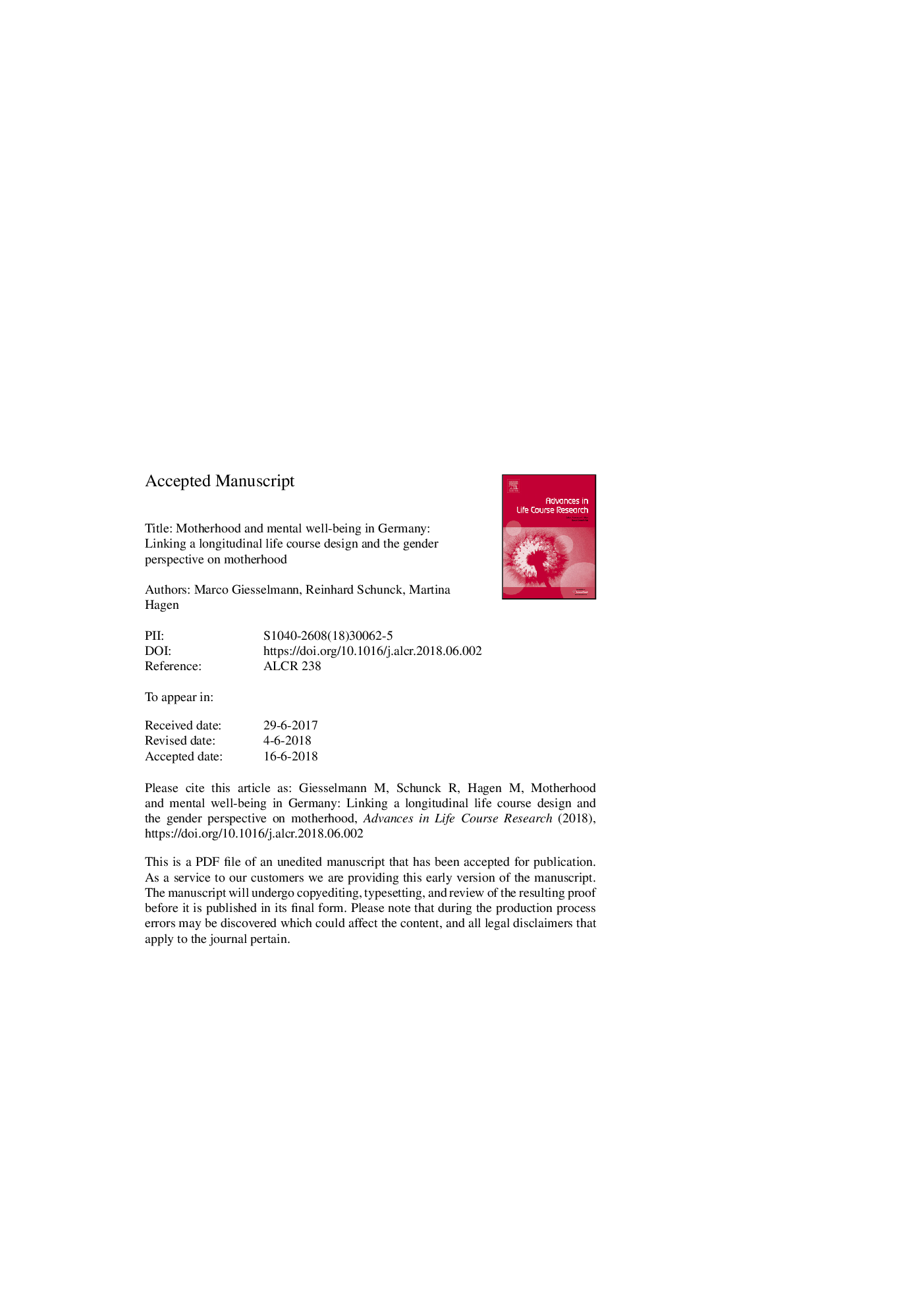| Article ID | Journal | Published Year | Pages | File Type |
|---|---|---|---|---|
| 6784691 | Advances in Life Course Research | 2018 | 45 Pages |
Abstract
Based on considerations of societal mothering ideologies, qualitative gender studies suggest detrimental effects of motherhood on women's mental well-being. However, numerous quantitative life course analyses find no such effect. This dissonance may originate in the measurement of well-being usually employed in longitudinal quantitative designs, which does not capture the dimensions of well-being identified as relevant in gender studies (i.e., stress, anxiety, depression, and social detraction). Using an indicator of well-being based on the Short Form 12 health questionnaire (SF-12), whose items correspond closely to these dimensions, this study integrates the gender perspective on maternal well-being in a longitudinal life course design. Using data on 1855 mothers and a control group of 6283 childless women from the German Socio-Economic Panel Study (SOEP), longitudinal analyses reveal a significant and steady decrease in average maternal mental well-being after first childbirth. When contrasted with the development in a matched control group of childless women, a smaller, but still statistically significant decline is predicted. Thus, our results are consistent with arguments of a detrimental effect of motherhood.
Related Topics
Physical Sciences and Engineering
Mathematics
Statistics and Probability
Authors
Marco Giesselmann, Marina Hagen, Reinhard Schunck,
